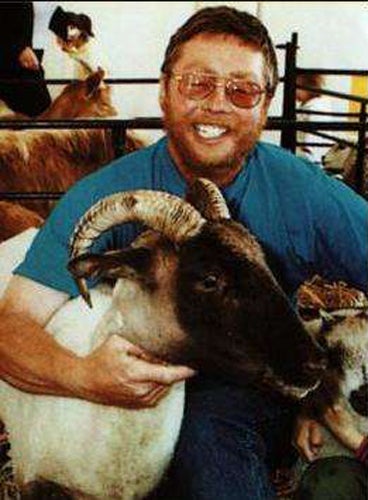Farmer kills himself after NT legal battle
Seven police officers taken ill after inhaling toxic gases during rescue attempt

Your support helps us to tell the story
From reproductive rights to climate change to Big Tech, The Independent is on the ground when the story is developing. Whether it's investigating the financials of Elon Musk's pro-Trump PAC or producing our latest documentary, 'The A Word', which shines a light on the American women fighting for reproductive rights, we know how important it is to parse out the facts from the messaging.
At such a critical moment in US history, we need reporters on the ground. Your donation allows us to keep sending journalists to speak to both sides of the story.
The Independent is trusted by Americans across the entire political spectrum. And unlike many other quality news outlets, we choose not to lock Americans out of our reporting and analysis with paywalls. We believe quality journalism should be available to everyone, paid for by those who can afford it.
Your support makes all the difference.A farmer who bankrupted himself in a legal battle with the National Trust committed suicide yesterday by inhaling rat poison. Bob Dearnley took his own life after being told that he was facing imminent eviction from the rare breeds centre into which he had sunk his life savings.
Seven police officers were rushed to hospital after falling ill as they tried to drag Mr Dearnley from a room at his 400-year-old farm, Burpham Court near Guildford, Surrey, where he had dropped tablets of a pesticide that generates clouds of toxic smoke into a glass of water.
The 57-year-old died at the scene shortly after 1am, when firefighters dressed in protective chemical suits finally retrieved his unconscious body following a 999 call from an individual, believed to be his wife Margaret, saying she was concerned for her husband's safety. The poison was phosphine, a foul-smelling gas that is lethal even at low concentrations and is used to exterminate agricultural pests such as rats and rabbits.
The Independent understands that police had arrested Mr Dearnley on Monday on suspicion of affray after a domestic incident at the imposing red brick manor house that once belonged to the wife of Edward the Confessor. Its more recent owners include the Duke of Sutherland and the American philanthropist Paul Getty.
Surrey Police said last night that the seven officers had been released from hospital after undergoing tests. Mr Dearnley, who had moved into Burpham Court in 1992 as a tenant of Guildford Borough Council, was due to attend a court hearing in two weeks' time to learn whether he would be evicted by the local authority. He had previously vowed never to leave because repossession would result in the slaughter of the animals on the farm, including 50 rare breeds of sheep and a collection of llamas.
The farmer declared himself bankrupt in 2006 after he lost a bitter court battle involving the National Trust, Guildford council and the Environment Agency over claims that the Trust was responsible for flooding his land and spreading disease because of repair work to a weir on an adjacent river.
Mr Dearnley, described by a friend as the most gentle man he knew, was left with debts of about £400,000, including legal fees of £100,000 owed to the Trust, which has an income of £357m. In a deal brokered with bankruptcy trustees, the farmer was due to have part of the debt cleared in return for vacating the farm in September last year.
But Mr Dearnley refused to leave the property, claiming that his animals was being poisoned by spillages from a council-owned landfill site near to the farm that had scuppered his dream of gaining organic accreditation. The family's problems worsened after two outbreaks of foot-and-mouth disease resulted in visitors being barred from the conservation centre and petting farm, their main source of income.
Speaking last year, Mr Dearnley said: "We won't be going anywhere. We're still fighting tooth and nail. We're not going." The National Trust said last night that it had repeatedly tried to reach a settlement with the farmer and had been left with no choice about seeking the costs incurred by the court case.
Join our commenting forum
Join thought-provoking conversations, follow other Independent readers and see their replies
Comments